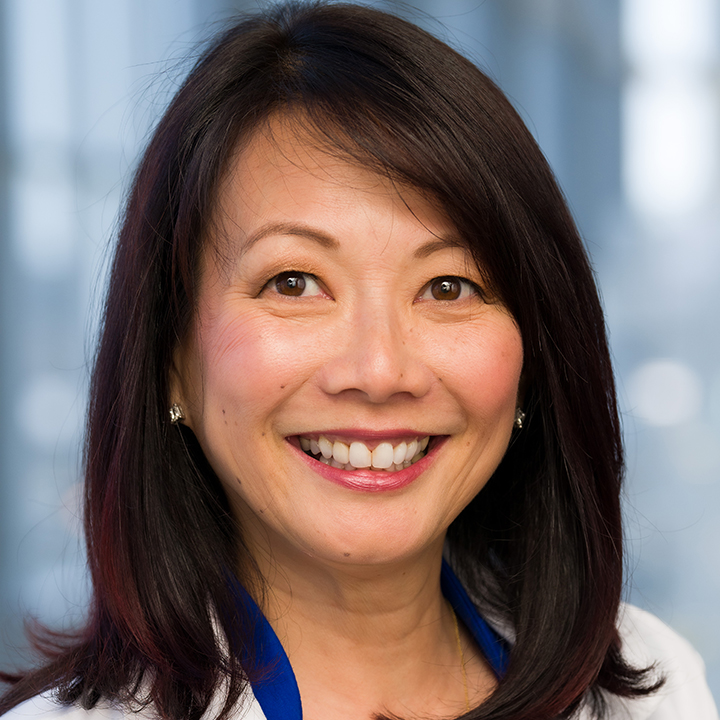Pamela Okada, M.D., M.S.C.S., M.B.A.

“Pediatric emergency medicine is a team sport – we, not me.”
Contributions to STEMM
As an academic pediatric emergency medicine physician, Dr. Okada “has the privilege of practicing at Children's Medical Center at Dallas, a level 1 pediatric trauma center, where we provide tertiary care to a diverse population of infants, children, and adolescents,” she said. “I belong to a group of resilient, brilliant, highly skilled physicians under the direction of our Division Chief, Dr. Vincent Wang. Together with our dedicated nursing and ancillary staff, we care for over 130,000 patients a year. Not only do we care for the sickest of the sick, but we, as a team, care for all who walk through our doors: a teen who finds himself abandoned by his family, hungry and cold; a child with a hurt arm after jumping off the bed pretending to be a superhero; and yes, the many parents with concerns that their child may have COVID-19.”
As an educator, “I also have the privilege of training and educating the next generation of pediatricians, family medicine, and emergency medicine physicians. In the Emergency Department, medical students, residents, and fellows from UT Southwestern receive training in pediatric emergency and acute care,” Dr. Okada said.
“The shared experiences help them shape and cultivate their pediatric knowledge and expertise, practice evidence-based medicine, and learn from the many subspecialists that collaborate in caring for our complex patient population.”
Early Influences
“I knew early in my life that I wanted to become a physician.”
“When I was 5 years old, my sister Carolyn died from acute myelogenous leukemia. My brothers and I did not understand why Carolyn cried often, stayed in bed, did not want to play with us, and always had to go to the doctor. My last memory of her was seeing her being carried by my mom into the ambulance that never brought her back home. When I was older, my mother explained to me that Carolyn stopped breathing because her lungs were filled with leukemic cells. In fourth grade, I resolved that I would study hard, become a doctor, and help suffering children and cure leukemia. In my mind, the plan seemed simple, straightforward, and obviously doable. My parents encouraged me every step of the way.”
Overcoming Challenges
“It wasn't until I was on my first clinical rotation where I was pushed out of my comfort zone into an anxiety-provoking situation.”
“I had to present my patient to a group of six men on neurology rounds. Being an introvert, I passed out in the middle of my first patient presentation. I fainted from sheer nervousness! After a quick revival, the attending pulled me aside and told me, ‘You've got to get this together!’ I was mortified. “I went home ready to pack my bags and head home. But deep inside, underneath the shame and embarrassment, I had a mission. I reached out to my family and trusted friends to coach me on finding my voice. I developed strategies to improve my patient presentations. As I practiced and developed confidence, public speaking became easier and less intimidating.” Now, as she mentors “young, introverted medical students who are also searching for their confident voice, I encourage them to remember their goals, passions, and mission.”
The UT Southwestern Difference
Dr. Okada values her role at UT Southwestern based on “the impact we make in our community, faculty, staff, and learners. Our mission of promoting a healthy society that enables individuals to achieve their full potential resonates with me. I have been at UT Southwestern for 25 years, and I am proud of the pediatricians that we have trained who are now serving in the community, both locally and nationally, and in general and specialty care,” she said.
View Academic Profile